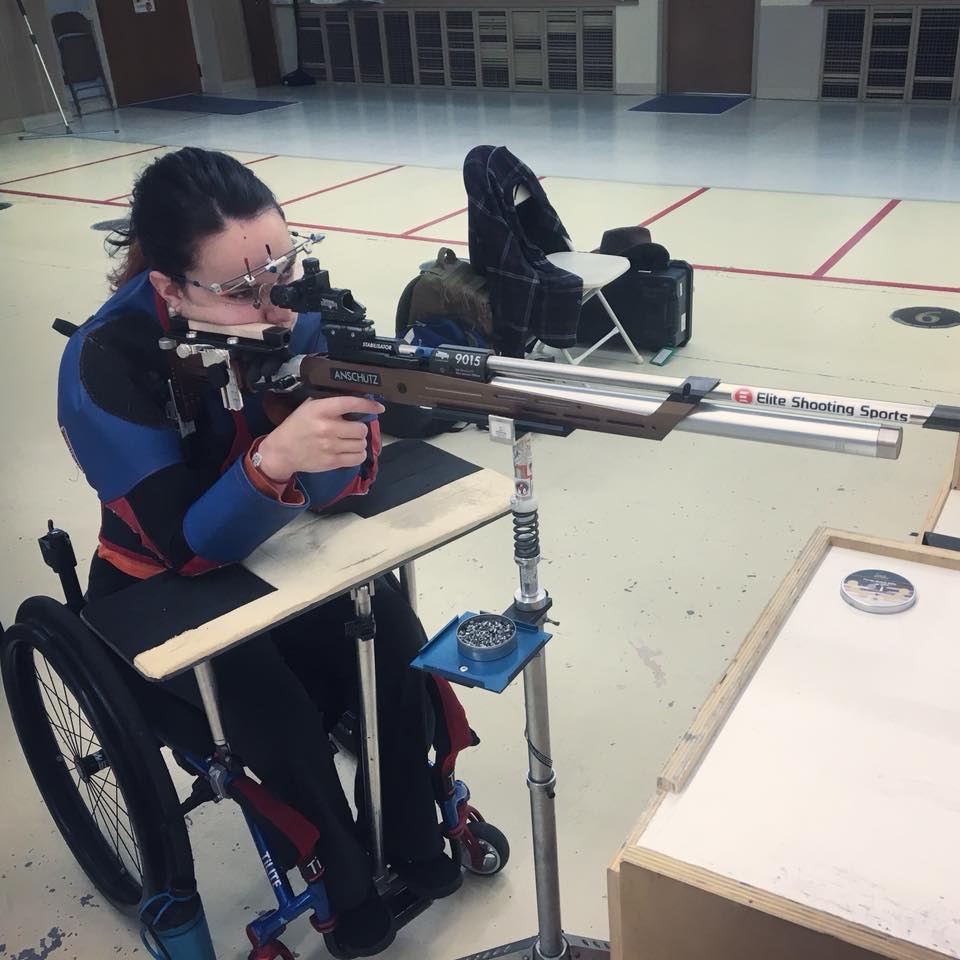By: Joe Warta
Shooter, Paralympian, bronze medalist, and business student.
McKenna Dahl has led an exciting life; from being the first woman ever to medal in Paralympic Shooting, to traveling the world for her sport, being the youngest competitive shooter at the 2016 Rio de Janeiro Paralympic Games, and now preparing to head to Tokyo in 2020, Dahl is an impressive and accomplished young shooter.
Gunpowder Magazine spoke to Dahl, who has been an avid shooter since she was twelve years old, to gain some of some of her personal insight into the sport:
What would you say is the biggest misconception people have about you or your fellow shooters?
Many people, including other Olympic/Paralympic athletes think that this sport is easy. We get to sit still during our entire competition, so how hard could that be? I think that shooting is one of the hardest sports to master, not because of the technical skills required, but the mental ones.
The equipment, position, and technical skills are important, but the mental game will make or break a shooting athlete on any given day. Rifle shooters like myself are shooting at a half-millimeter dot 10 meters away, and to make things even more interesting, that dot is further divided into tenths of a millimeter. It’s not enough to just shoot 10s. You have to shoot deep 10s on every single shot, in between heartbeats, and through the nerves that competing for Olympic/Paralympic medals bring.
What advice would you give to those who want to try to get started in this sport?
Ask questions! Any shooting discipline can be shared and learned if you reach out. Find a club, ask a friend, or write an email. People want to help bring you into the sport, and don’t be afraid to take advantage of the resources you have available to you!
What are the most common mistakes people make when shooting?
Settling for “good enough.” This sport can be unforgiving at times, and it is essential to ensure that every aspect of your shot process is as good as it can be, from start to finish. Settling for “good enough” means letting fixable mistakes slide, costing you points, and the shot at a medal. Every shot counts, and every point counts.
How do you train for the sport, and what’s your routine for training?
I train 5 days a week at the Olympic Training Center, including range time, strength and conditioning, sports psychology, and nutrition. During a typical training day, I’m on the range from 8-12, take a break for lunch, am in the gym from 1-2 with my main focus being core and shoulder strength, finishing my training day with a meeting or two for sports psychology or nutrition. In addition to my sports training, I am also working on completing my Master’s Degree in Business Administration with DeVry University.
What’s the best and worst part of your job?
The best part of my job are the opportunities that have presented themselves because I started shooting. I have had the honor of representing the United States on the world’s stage and bringing home a medal for my country. I have had the opportunity to meet so many amazing people from around the world, and experience the wonders of other cultures. My life has forever been changed because someone introduced me to the shooting sports, and I hope to be able to inspire someone in the same way I was.
I wouldn’t say the worst part of the job, but maybe one of the hardest, is handling the negative perceptions surrounding the shooting sports. My goal as an ambassador for the shooting sports is to tell my story and inspire the next generation who will carry on the legacy of the shooting sports.
Joe Warta is a Regional Director with the National Association for Gun Rights writing from Colorado. Contact him at [email protected].
Photo courtesy of Facebook.

